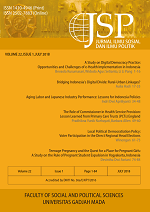Explaining Zimbabwe’s Survival Against Sanctions (1997-2017): A Resilience Perspective
Justin Itayi Mujaji
Abstract
International economic sanctions (IES) were imposed on Zimbabwe by Western sanctions-imposing nations (SINs) from 1997, when President Mugabe was still in power. This study examines how Zimbabwe survived the IES menace during President Mugabe’s reign (1997-2017) and highlights how conventional theories on resistance against sanctions did not adequately acknowledge the concept of resilience in Zimbabwe. This problem arose because current resistance theories tended to apply only to the SINs and not the IES target countries (including Zimbabwe), which were often labelled as anti-democratic and pro-terrorism. The findings of this study were that President Mugabe, his government, and the people of Zimbabwe had extraordinary resilience against IES, hence the continued existence of the country as a unitary state by 2017. The study adopted an interpretivist philosophy to understand the real-life situations of respondents, as reflected by their behaviours and preferences. Primary data was collected through in-depth interviews and focus group discussions, while the secondary data was gathered from desk research. In addition, triangulation techniques were employed to enhance the validity and reliability of findings. The study draws on resilience theory, with the researcher coming up with a resilience model (ZRM) to help explain Zimbabwe’s survival. Resilience theory is a unique approach because, whilst the concept had previously been the preserve of scientific areas like engineering, public health, social sciences, psychology, and others, its importance has been overlooked in the area of IES. By re-contextualising the resilience phenomenon to IES, the study makes an important contribution to knowledge.
Keywords
Zimbabwe; Resilience; IES; ZRM; RCA























